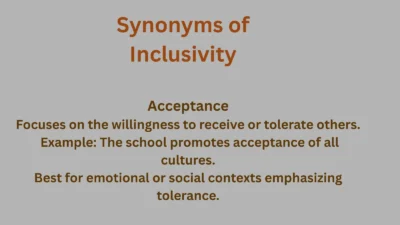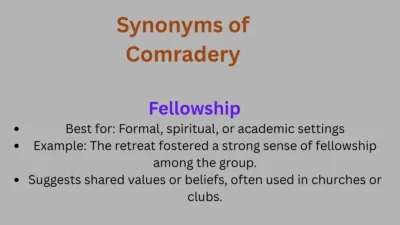Synonyms of wearily are essential when you want to describe someone who’s moving, speaking, or thinking with deep tiredness — whether physical, emotional, or mental. If you’ve ever felt exhausted, burnt out, or simply out of energy, you already understand the feeling behind the word wearily. But using the same word repeatedly can dull your writing. So how can you express the same mood with a fresh twist?
In this article, we’ll explore what wearily really means, its subtle emotional tones, and 30 vivid synonyms of wearily that will help you bring your writing to life.
If you’re crafting a story, writing dialogue, or simply trying to capture a mood more precisely, these alternatives will help you communicate tiredness with clarity, variety, and depth.
What Does Wearily Mean?
Wearily describes doing something in a tired, fatigued, or exhausted manner. When someone acts wearily, they often show physical or mental tiredness. It can also hint at emotional exhaustion—like when you’re fed up, drained, or just done with the day.
Key nuances of wearily include:
- Fatigue — both physical and mental
- Reluctance or lack of enthusiasm — doing something with low energy
- Resignation or a kind of quiet giving up
- Subtle emotional weariness, like mild frustration or boredom
Wearily is often used to convey how tiredness affects the way someone moves, speaks, or behaves, often in a gentle, subdued way.
30 Synonyms of Wearily: Meanings, Usage, and Examples
Here are 30 alternatives to wearily, each with a brief explanation, example sentence, and when to use them.
1. Fatigued
Meaning: Physically or mentally very tired, often after exertion.
Example: She rubbed her eyes, fatigued after the long hike.
Use when: You want a straightforward, clinical word for exhaustion.
2. Exhausted
Meaning: Completely worn out or drained of energy.
Example: He collapsed on the couch, exhausted from work.
Use when: You want to emphasize total depletion of energy.
3. Weary
Meaning: Feeling or showing tiredness, especially from prolonged effort.
Example: The traveler gave a weary sigh upon arriving.
Use when: Describing deep, ongoing tiredness or boredom.
4. Tiredly
Meaning: Done with low energy or enthusiasm.
Example: She yawned tiredly after the meeting.
Use when: You want a softer, more casual way to say “wearily.”
5. Lethargically
Meaning: In a slow, sluggish, or indifferent manner.
Example: He moved lethargically across the room.
Use when: You want to imply not just tiredness but also lack of motivation.
6. Drowsily
Meaning: As if half-asleep or very sleepy.
Example: She nodded drowsily during the lecture.
Use when: Indicating sleepiness, often gently or peacefully.
7. Listlessly
Meaning: Without energy or enthusiasm; spiritless.
Example: He stared listlessly at the TV.
Use when: Expressing a lack of interest or energy.
8. Weakened
Meaning: Reduced in strength or vigor.
Example: The patient walked weakened from illness.
Use when: Emphasizing physical or mental weakening.
9. Drained
Meaning: Emotionally or physically depleted.
Example: After the argument, she felt completely drained.
Use when: Highlighting emotional exhaustion alongside physical.
10. Slowly
Meaning: At a low speed, often due to tiredness.
Example: He walked slowly after the long run.
Use when: Describing slow movement tied to fatigue.
11. Sleepily
Meaning: As if about to fall asleep.
Example: She blinked sleepily after staying up late.
Use when: Showing a near-sleep state, often gentle or cute.
12. Dragging
Meaning: Moving with difficulty or reluctance.
Example: He dragged his feet home after the exhausting day.
Use when: Showing reluctance or heavy exhaustion.
13. Fatiguingly (rare)
Meaning: In a tiring or exhausting manner.
Example: The work went on fatiguingly long.
Use when: To emphasize the tiring nature of an activity.
14. Inertly
Meaning: Without movement or energy.
Example: She lay inertly on the sofa.
Use when: Emphasizing a lack of physical activity or energy.
15. Enervated
Meaning: Drained of energy or vitality.
Example: The hot sun left the workers enervated.
Use when: For a more formal or literary tone about exhaustion.
16. Sluggishly
Meaning: Moving slowly and without energy.
Example: The horse moved sluggishly after the race.
Use when: Describing slow, heavy movement due to tiredness.
17. Resignedly
Meaning: Accepting something tiredly or without resistance.
Example: He nodded resignedly to the bad news.
Use when: Expressing quiet acceptance mixed with weariness.
18. Droopingly
Meaning: Hanging or sagging tiredly.
Example: Her eyelids droopedingly closed after a long day.
Use when: Describing physical signs of tiredness.
19. Indifferently
Meaning: Without interest or concern, often tiredly.
Example: He shrugged indifferently at the comment.
Use when: Showing emotional weariness or detachment.
20. Somberly
Meaning: In a serious, subdued, or tired manner.
Example: She spoke somberly about her struggles.
Use when: Highlighting emotional heaviness combined with fatigue.
Qapnote.com is your new home for meaningful quotes that inspire your day, lift your mood, and touch your heart.
21. Carelessly
Meaning: Without attention or energy.
Example: He answered carelessly, too tired to focus.
Use when: Showing tiredness that leads to lack of care.
22. Dejectedly
Meaning: In a sad and tired way.
Example: She walked dejectedly after the bad news.
Use when: Emphasizing emotional exhaustion mixed with sadness.
23. Heavy-heartedly
Meaning: With sadness and weariness.
Example: He sighed heavy-heartedly after the loss.
Use when: Expressing emotional fatigue with grief or sorrow.
24. Tepidly
Meaning: Without enthusiasm or energy.
Example: She tepidly agreed to the plan.
Use when: Showing lukewarm energy or interest.
25. Draggingly (rare)
Meaning: In a slow, tiring manner.
Example: The day dragged draggingly on.
Use when: Emphasizing extreme slowness due to weariness.
26. Wistfully
Meaning: With a tired longing or sadness.
Example: He looked wistfully at the past.
Use when: Combining tiredness with nostalgic emotion.
27. Wearifully (rare/archaic)
Meaning: Tiredly or laboriously.
Example: She worked wearifully through the night.
Use when: For poetic or old-fashioned contexts.
28. Languidly
Meaning: In a slow, relaxed, and tired way.
Example: He stretched languidly after waking up.
Use when: Suggesting pleasant tiredness or laziness.
29. Blearily
Meaning: With blurry or tired eyes.
Example: She blinked blearily after waking.
Use when: Indicating physical signs of tiredness, especially in the eyes.
30. Droopily
Meaning: Hanging down tiredly or limply.
Example: The flowers droopily wilted in the heat.
Use when: Describing drooping movement from exhaustion.
How to Choose the Right Synonym for Wearily
Choosing the right word depends on the context and the shade of meaning you want to convey:
- Physical vs. emotional tiredness: Words like fatigued, exhausted, or drained are better for physical or emotional fatigue. Dejectedly or heavy-heartedly emphasize emotional weariness.
- Intensity of tiredness: Exhausted or enervated are strong, while languidly or sleepily suggest a gentler tiredness.
- Tone and style: For casual writing, tiredly or slowly work well. For formal or literary texts, try enervated or resignedly.
- Physical signs: Use blearily, droopily, or draggingly to paint a vivid picture of tiredness in movement or appearance.
- Emotional nuance: If tiredness comes with sadness or resignation, dejectedly, wistfully, or somberly fit better.
Cultural and Emotional Contexts
- In English literature, weary and its relatives like enervated and resignedly often carry emotional or existential weight.
- In casual conversation, simpler terms like tiredly or exhausted dominate.
- Some synonyms (wearifully, draggingly) are rare or archaic, great for creative writing or poetry, but not everyday speech.
- Words like wistfully mix tiredness with emotion, suitable for expressive or nostalgic contexts.
Conclusion:
Now you’ve got a rich toolkit of 30 alternatives to wearily, each with its flavor and context. If you want to show simple physical exhaustion, deep emotional fatigue, or slow, reluctant movement, there’s a word here to fit.
The key to using these synonyms effectively is to consider:
- The intensity of tiredness
- Whether it’s physical, emotional, or both
- The tone (formal, casual, poetic)
- The context — are you describing actions, emotions, or appearances?
Mix and match these words to keep your writing fresh and precise. Next time you want to say “wearily,” try one of these 30 alternatives to give your sentences new life and clearer meaning!




